This article needs additional citations for verification .(February 2024) |
| |||
|---|---|---|---|
| +... |
This article is about music-related events in 1837 .
This article needs additional citations for verification .(February 2024) |
| |||
|---|---|---|---|
| +... |
This article is about music-related events in 1837 .


Carl Czerny was an Austrian composer, teacher, and pianist of Czech origin whose music spanned the late Classical and early Romantic eras. His vast musical production amounted to over a thousand works and his books of studies for the piano are still widely used in piano teaching. He was one of Ludwig van Beethoven's best-known pupils and would later on be one of the main teachers of Franz Liszt.
This article is about music-related events in 1839.
This is a list of music-related events in 1816.
This article is about music-related events in 1833.
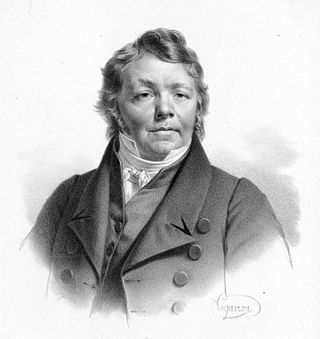
Johann Nepomuk Hummel was an Austrian composer and virtuoso pianist. His music reflects the transition from the Classical to the Romantic musical era. He was a pupil of Mozart, Salieri and Haydn. Hummel significantly influenced later piano music of the 19th century, particularly in the works of Chopin, Liszt and Mendelssohn.
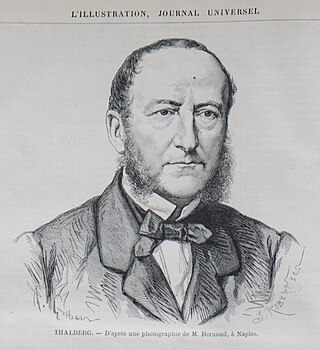
Sigismond Thalberg was an Austrian composer and one of the most distinguished virtuoso pianists of the 19th century.
The year 1709 in music involved some significant events.
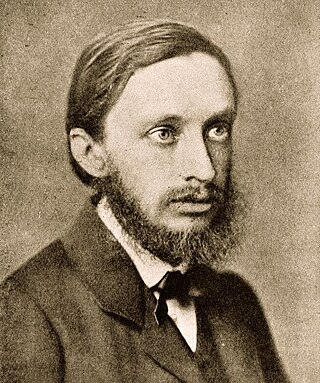
Hermann Gustav Goetz was a German composer who spent much of his career in Switzerland. He is best known for his 1872 opera Der Widerspänstigen Zähmung, based on Shakespeare's The Taming of the Shrew.
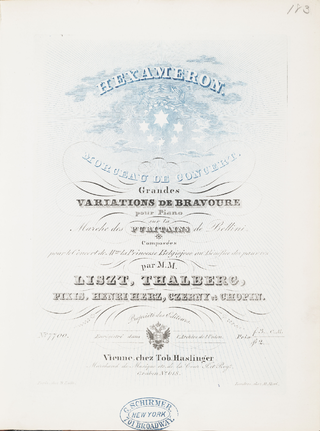
Hexaméron, Morceau de concert S.392 is a collaborative composition for solo piano. It consists of six variations on a theme, along with an introduction, connecting interludes and a finale. The theme is the "suoni la tromba" from Vincenzo Bellini's opera I puritani.

Johann Peter Pixis was a German pianist and composer, born in Mannheim. He lived in Vienna from 1808 to 1824, then in Paris to 1840, during which time he was among the city's most prominent pianists and composers, although he is almost entirely forgotten nowadays.

Zar und Zimmermann is a comic opera in three acts, music by Albert Lortzing, libretto by the composer after Georg Christian Römer's Der Bürgermeister von Saardam, oder Die zwei Peter, itself based on the French play Le Bourgmestre de Saardam, ou Les deux Pierre by Mélésville, Jean-Toussaint Merle, and Eugène Centiran de Boirie. Ultimately, it goes back to the historical Grand Embassy of Peter the Great. Gaetano Donizetti had set the same story in his 1827 opera Il borgomastro di Saardam.
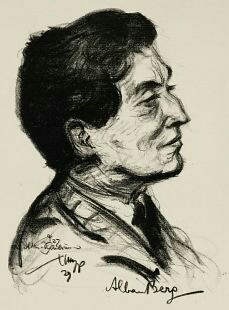
Alban Berg's Five Orchestral Songs after Postcards by Peter Altenberg, Op. 4, were composed in 1911 and 1912 for medium voice, or mezzo-soprano. They are considered a true song cycle, unlike his previous two groups of songs, the Sieben frühe Lieder of 1908 and the Vier Gesänge, Op. 2, of 1910, and they are his first work for orchestra. The postcard texts by contemporary Viennese poet Peter Altenberg recount the stormy but beautiful condition of the soul and the palpable sensations of love and longing. The highly imaginative music responds with many displaced ostinati and a conflicted, lyrical passion.

Joseph Christoph Kessler, also seen as Kötzler, was a German pianist and composer who was active mostly in the Austrian Empire. His études, nocturnes, variations, preludes and bagatelles were praised by such people as Franz Liszt, Sigismond Thalberg, Ignaz Moscheles and Friedrich Kalkbrenner, and he was the dedicatee of the 24 Preludes, Op. 28 by Frédéric Chopin.
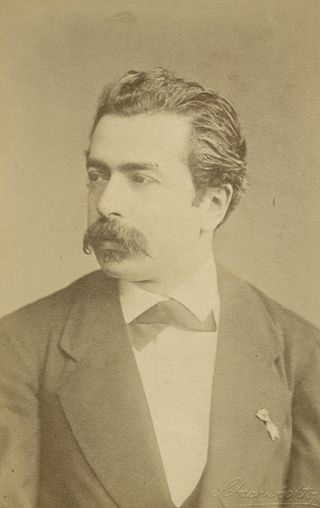
Józef Wieniawski was a Polish pianist, composer, conductor and teacher. He was born in Lublin, the younger brother of the famous violinist Henryk Wieniawski. After Franz Liszt, he was the first pianist to publicly perform all the études by Chopin. He appeared with Liszt in recitals in Paris, London, Copenhagen, Stockholm, Brussels, Leipzig and Amsterdam.

Joseph Merk was a cellist from the Austrian Empire, often described as one of the most influential of the first half of the 19th century. He also wrote a number of compositions for the cello.
The three-hand effect is a means of playing on the piano with only two hands, but producing the impression that one is using three hands. Typically this effect is produced by keeping the melody in the middle register, with accompanying arpeggios in the treble and bass registers.